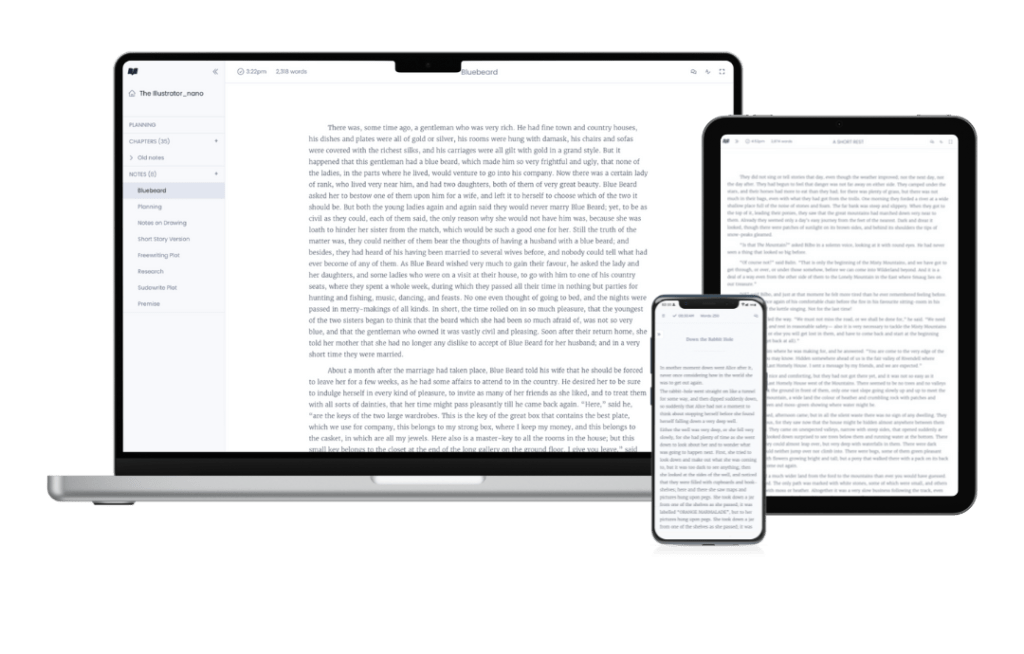
How to Get The Most From Your Beta Readers

If you plan to publish a book, it’s essential to get as much feedback as possible. Feedback is crucial for making sure your story is the best it can be; that’s where beta readers come in.
Beta readers will read your book and give feedback on what they like about it (and what they don’t). They’re not professional editors or proofreaders. They’re just ordinary readers who like books and want to help authors improve theirs.
What is a beta reader?
A beta reader is someone who reads your manuscript and gives you feedback. They can be friends, family members, colleagues, or other writers.
They don’t have to be industry experts (readers with no expertise in writing at all can be incredibly useful); they just need to enjoy reading and want to help you improve your work before it goes out into the world.
There are many kinds of beta readers, and who you look for will depend on what stage of the writing process you’re in. Some beta readers will give you detailed feedback on specific aspects of your writing (such as plot structure or character development), others may answer a set series of questions, while others will simply tell you whether they liked your story overall and why they did/didn’t like it.
No matter what kind of beta reader they are, they all serve one purpose: to give you insight into how readers might react when you finally put your book out into the world.
Who makes a good beta reader?
There are several qualities and characteristics that make someone a good beta reader. The first and most obvious characteristic is honesty. A beta reader should be able to tell you when something isn’t working, whether that’s plotting or character development, a problematic theme, or if you’re overusing cliches.
Another important trait of a good beta reader is that they actually enjoy reading. If they can recognize what makes a book good (or not) based on their own experience as a reader, that will help them give you the best feedback possible.
Finally, it’s helpful if your betas know how to communicate effectively to provide constructive criticism. Good communication skills mean you’ll get more out of every conversation with your betas — and less frustration on both sides.

Where can you find beta readers?
You usually don’t have to go very far when finding beta readers for your book. But where you look will depend on what kind of feedback you’re looking for.
Here are some places where you can find them:
- Friends and family
- Social media (Facebook, Twitter, Instagram)
- Online forums for readers who enjoy your genre
- Writing groups (online or local)
- Local libraries (notice boards or through their social pages)
- Reciprocal feedback communities like Scribophile
If you’re looking for a more targeted group of people with varied backgrounds looking for beta reading opportunities, you may want to consider going directly through a writing group. We’ve got a great community in our Discord server who are always ready to give feedback!
Prepare your manuscript
Before you begin, make sure your manuscript is in a readable format. The less work it is for the beta reader, the more likely they will read it and provide feedback you can actually use.
If your manuscript is riddled with spelling and grammar errors that you could easily have picked up in an initial proofread, you risk it distracting your readers from the content. Beta readers shouldn’t be proofreaders, but if there are too many errors in the manuscript you give them, that is what they will focus on.
Don’t worry about getting the formatting to publishing standard. The most important thing is readability. Correctly formatted titles, consistent paragraph spacing, and properly used dialogue tags are the most critical parts. You don’t want reading to be a chore.
Know what you want to get out of it
One of the most important things you can do when working with beta readers is to be prepared. Make sure you know what type of feedback you want from your betas, and plan for the possibility that some will give bad or incomplete reviews. If you are expecting all positive feedback, it will hurt more when someone delivers a negative review. Instead, expect that there will be a mix of readers with various levels of enjoyment.
Make sure that you have a good understanding of what kind of feedback you want from your beta readers. Do they need to read the entire manuscript? Or just specific chapters? Do you want feedback about character arcs? Pacing? Narrative flow? Plot holes?
When I published my last short story, there were elements in the plot I knew were weak, so I asked for feedback on those sections specifically. Hearing how readers reacted to it helped pinpoint precisely why it wasn’t working.
Never be afraid to tell your beta readers if you’re looking for specific types of feedback, but also be open to the general as well.

Always ask for clarification
Negative feedback is always useful, even if it doesn’t seem like it at face value. Accepting criticism is always a good mindset for any author, but don’t be afraid to respectfully interrogate negative criticism to really get to the bottom of why your beta reader feels that way.
Asking questions of your beta readers can help determine whether their feedback is subjective or objective. Subjective feedback means that their dislike is just a matter of taste, but if they are being objective, their dislike of a particular story element may be because of how you’ve communicated it.
Asking your readers about their negative feedback will help drill down to the fundamentals; is it a story element that doesn’t work at all, or is it an element that works if you present it differently?
Try to be collaborative
Beta readers are giving you a considerable amount of their time free of charge, so it’s important to remember that as you speak to them and gather feedback. Be polite, of course, but also be respectful of their time and the effort they’re putting in.
Be collaborative in the way you approach feedback. I like to use a format where I can have a dialogue with my beta readers, like Google Docs or Word. When they leave comments, I can reply, and we can talk about their thoughts. This is especially useful for criticism as it allows for additional input to really learn about why your reader thinks the way they do.
But most importantly, don’t argue with your beta readers, even if you disagree with what they’re saying. A beta reader isn’t trying to offend or insult you; they’re just trying to help improve your writing — and tone is especially difficult to convey when you’re giving on-the-fly feedback.
No matter how negative the feedback is, it usually has value when considered logically rather than emotionally. A reader’s feedback may make perfect sense to them, but they might not be able to properly articulate it, making open, collaborative discussion an absolute must. Be sincere and humble when receiving critiques; your manuscript will be better for it.
Don’t use the same beta readers for multiple drafts
When you find a pool of beta readers you enjoy working with, sending them multiple revisions for review can be tempting. This is fine for some of your readers, but it’s equally important to ensure you get fresh eyes on each draft.
Sharing your manuscript with only the same people means they will give their second lot of feedback in comparison to your first. This is definitely valuable, but you’ll also want people who will give you feedback on the updated draft as it is.
It’s also easy for beta readers who have already put in a lot of time to read the first review draft of your manuscript to get bored by the second read-through. It’s unreasonable to expect a reader to put in the same amount of time and detailed reading into a second version of the same content. They’re more likely to miss essential plot holes or story inconsistencies if they’re reading a story they’re already familiar with.

Be courteous and respect their time
It’s already been covered here, but it bears repeating; be courteous and respectful of your beta readers.
Beta readers are your friends, family, or colleagues who have taken the time out of their busy schedules to give you feedback on your book. Make sure you respect their time and don’t bug them for feedback if life keeps them busy.
Don’t overwhelm them with too many drafts at once. You can’t expect a beta reader to re-read your manuscript after every little change you’ve actioned. Send them the one, discuss their feedback, and action it in your own time. If you value their feedback, then ask them if they want to re-read the new draft, but don’t be offended if they don’t.
If you can, do something to thank your beta readers. When you publish your novel, send them a free digital copy so they can read the finished product, and if you do, don’t bug them for reviews. If they want to give you one, they will. This should be a gesture of thanks and nothing more.
Beta readers are giving you free labour to improve your work. It’s the most fundamental thing to remember, and you should always be thankful for and mindful of that fact.
Beta readers are an essential part of the publishing process, but it can be easy to take them for granted. Remember, they’re there to help you improve your manuscript and ensure it’s ready for publication. Be respectful and courteous, but also work collaboratively to really get the most from their feedback.































